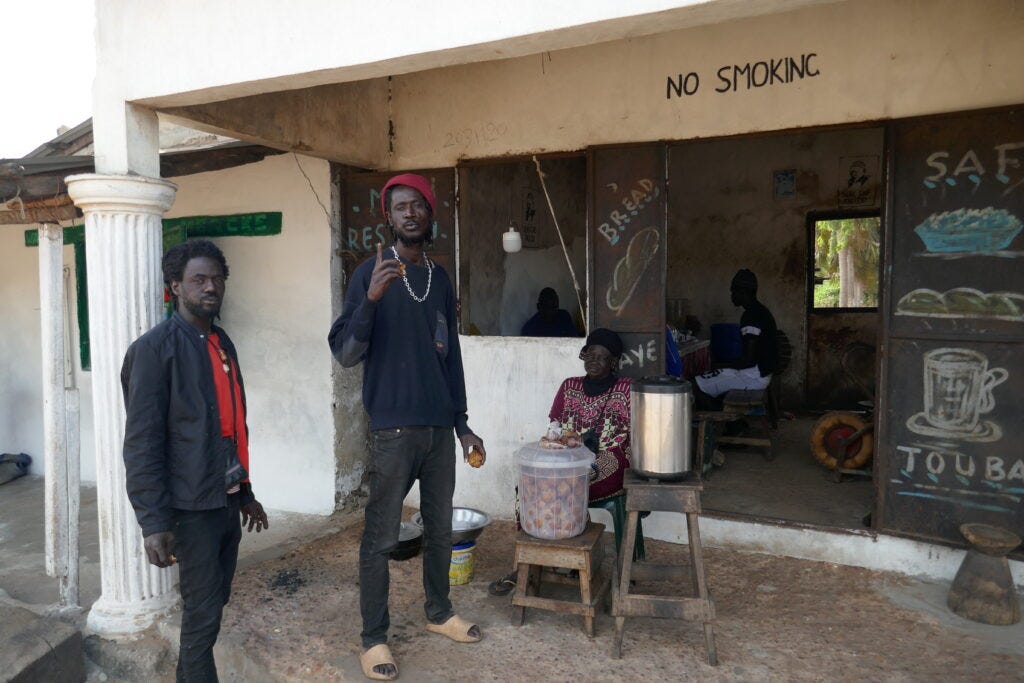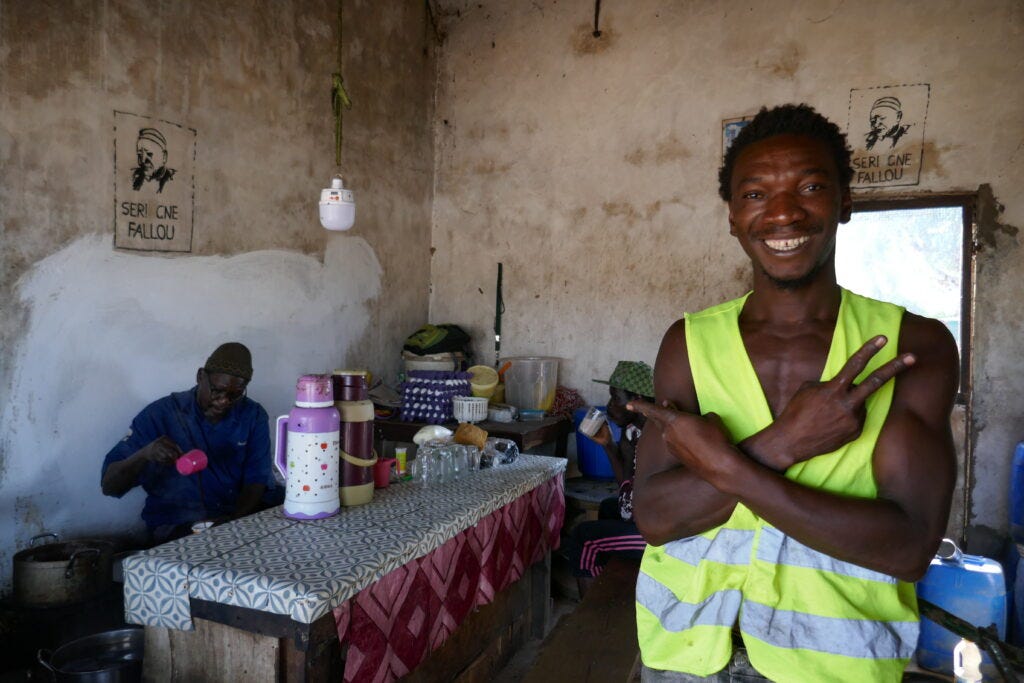Café Touba
It is a great place! If you smoke ganja [marijuana] they kill you!
On the Gambian coast I meet Alpha, Grillboy, P-Boy, and UB40. Their peculiar nicknames (or yard names) refer to the Rasta culture of Jamaica. I ask UB40 why coffee in Gambia is always instant. I dislike instant coffee. "Don't you know Café Touba?" He asks. The Café Touba coffeeshop is opposite street, so we walk there, so I can have a taste.
Café Touba is apparently a cult local coffee alternative, named after the sacred town of Touba in Senegal. It is based on a blend of grilled grains of spices unknown to me that taste similarly to chicory, with a lot of sugar. I like it a lot. I like even more the family-operated coffee shop, that offers Café Touba and pancakes. This is how it looks. Digital nomads, come here to work on your laptops, if you like!
But it is more than a drink, because the mystical association with the religious movement of Touba seems something very important. I keep seeing devout references to Touba holy men everywhere in the Gambia and Senegal.
I later ask the taxi driver Abdalai to explain the meaning of the holy city of Touba. He explains simply: "It is a great place! If you smoke ganja [marijuana] they kill you! And if you smoke a cigarette, they take you to the city market, and beat you with a stick very hard!" I understood that with these simple words Abdalai tries to put forward the benefits of Shari'a law. I try to discuss:
"Abdalai, this sounds like a horrible place. Do you think it is good to beat people with a stick?"
"It is very good! When my wife speaks up to me, I say: try this again and I beat you! And she will shut up immediately"
I have no more arguments, I think Touba must indeed be a great place. Maybe before getting married, I am going to send my fiancée to Touba for a little training. As for myself, I will probably not go but the Café Touba coffee shop in Sanyang is definitely my place.




Hey Pablo. Thank you for this. Those guys are probably Mourides, a muslim sect, based in Touba. Furthermore, they are probably Baay Faal, a sect within a sect that strives for holiness or paradise by imitating the life and work of Sheihk Ibrahima Fall. They aren't particularly devout, but they are forgiven that for their work. You can see groups of Baay Faal in cities, and they can be mistaken for Rastafari. They mostly beg for their living, but once a year they serve as the security force for the Grand Màgal, which is the pilgrimage to Touba. They prevent cigarettes and other vices from entering the city, and are reputed to be quite vicious if they catch you. On the other hand, Touba, at least when I was there 40 years ago, was considered a den of smugglers by the government, particularly of weapons. I don't know if any of that is true anymore. At any rate, you could still see and hear groups of Baay Faal, playing music and walking down the street in Dakar. Often they would be accompanied by a couple of French white people who seemed to find a way of life living in the group. I was invited to the Grand Màgal one time, and I really need to write about that. The pilgrimage is estimated to draw almost 3 million people, all of whom must be transported and then fed in the city. It is a scene you can imagine with trains completely full, but also bristling with people on the roofs of the cars and hanging from the sides. Into a swirling mass of humanity. I was the only white person I saw that day, but we were treated cordially and with respect. We had gone to discuss community improvement projects with the Croissant Rouge. Look for a post about this.